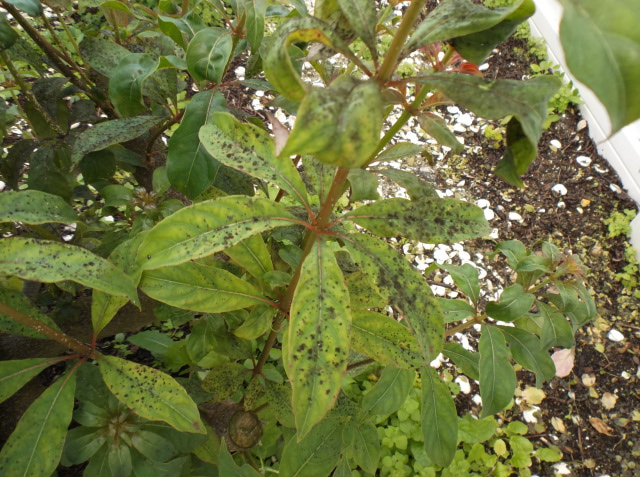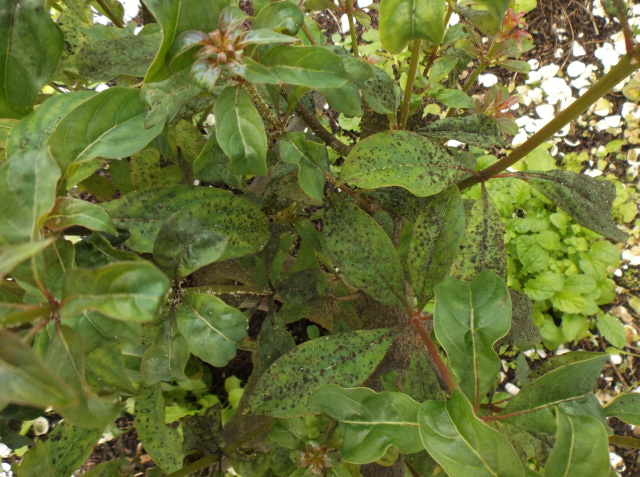Question
 firebush
firebush  second pci
second pci
I live in Fl. and just recently did a severe pruning on this firebush shrub. It is just starting to grow back and I am noticing a lot of what looks like black mold.
Can you tell me what it is and how to kill it?
AnswerHello again Mary. I am happy to help with this issue.
The black specks that you are seeing have nothing to do with your pruning, so please do not feel that you did anything to harm your plants. The black mold you are seeing is in fact mold. It is sooty mold and it is typically caused by the secretions of aphids, which are particularly common as temperatures warm up and the little devils awaken from their winter slumber. I see it every spring on roses that I have overwintered in my garage. Your creatures are gone or you would have noticed hundreds of little crawling creatures on your plants. What you are seeing is the evidence of their presence.
The important things to understand about aphids (also fondly referred to as "plant lice") is that they are essentially born pregnant and can reproduce by the thousands in a matter of days. They excrete the substance that you are seeing, and then it turns black. It's not fatal.
The first step is to give the plants a thorough washing with a nice sharp spray of water. In fact, this is also the cure. You can use insecticidal soap, an organic and inexpensive remedy found in an immediate use spray or concentrated form in hardware stores and garden centers, but you can also alleviate the problem by simply spraying the plants - the insecticidal soap is not actually necessary. Aphids cannot fly - they crawl. The sharp spray of water knocks them to the ground where they become food for birds.
So both cure and prevention are the same. Go out every day with your hose and use a setting on your spray nozzle that is probably labeled "sharp spray". Make sure that you hit all surfaces, especially the underside of the leaves where they hide.
If you watch for their arrival early each year, you can prevent this problem by spraying every day as a matter of course.Their season is short, and you can stop spraying after a few days if they do not reappear.
Have I explained well enough? If you have any concerns or questions or need more clarification please feel free to write again.
Regards,
Donna







